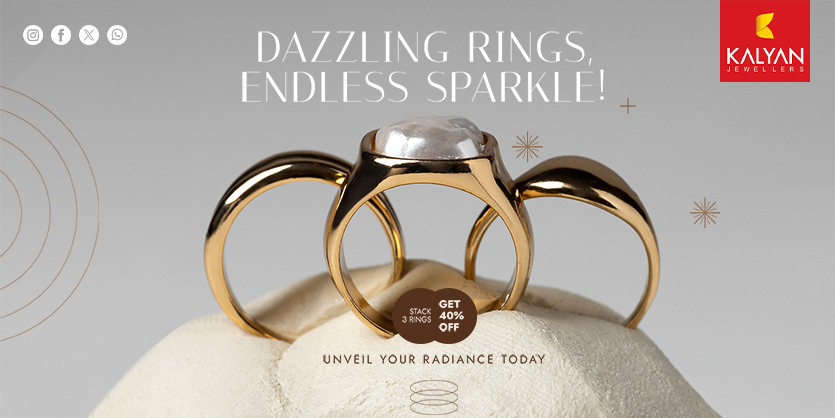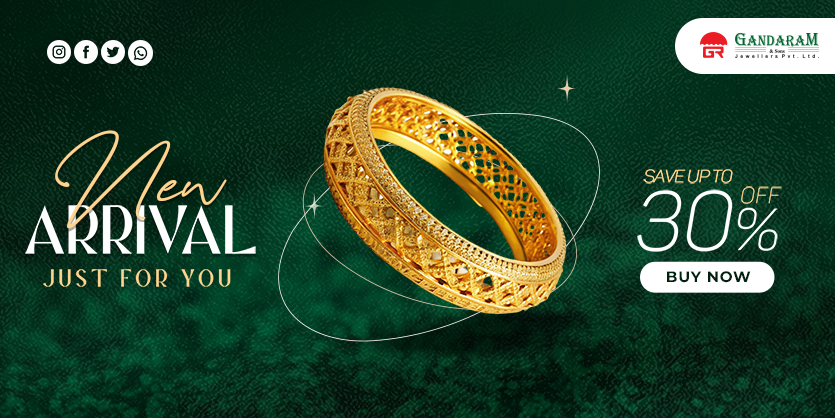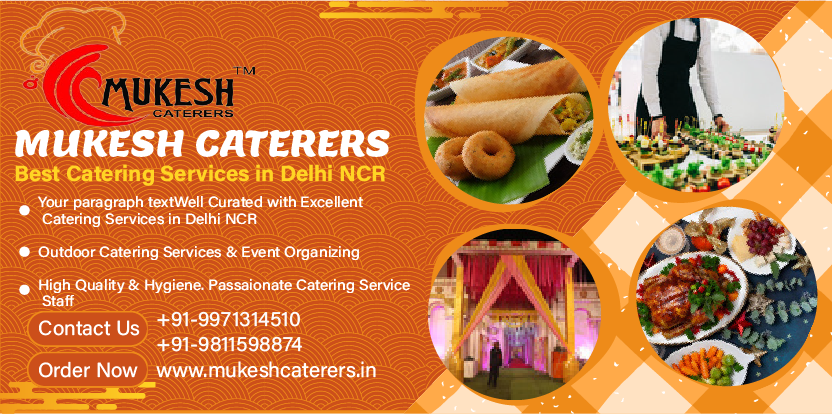 Languages
Languages
- Assamese Brides
- Assamese Grooms
- Assamese Matrimony
- Bengali Brides
- Bengali Grooms
- Bengali Matrimony
- Gujarati Brides
- Gujarati Grooms
- Gujarati Matrimony
- Hindi Brides
- Hindi Grooms
- Hindi Matrimony
- Kankani Brides
- Kankani Grooms
- Kankani Matrimony
- Kannada Brides
- Kannada Grooms
- Kannada Matrimony
- Kerala Matrimony
- Malayalam Brides
- Malayalam Grooms
- Marathi Matrimony
- Marwadi Matrimony
- Oriya Matrimony
- Parsi Matrimony
- Punjabi Matrimony
- Sindhi Matrimony
- Tamil Matrimony
- Telugu Matrimony
- Urdu Matrimony
 City
City
- Bangalore Brides
- Bangalore Grooms
- Bangalore Matrimony
- Calcutta Brides
- Calcutta Grooms
- Calcutta Matrimony
- Chennai Brides
- Chennai Grooms
- Chennai Matrimony
- Delhi Brides
- Delhi Grooms
- Delhi Matrimony
- Delhi Matrimony and Indian Climate
- Hyderabad Brides
- Hyderabad Grooms
- Hyderabad Matrimony
- Mumbai Brides
- Mumbai Grooms
- Mumbai Matrimony
- Pune Brides
- Pune Grooms
- Pune Matrimony
 State
State
- Andhra Pradesh Brides
- Andhra Pradesh Grooms
- Andhra Pradesh Matrimony
- Arunachal Pradesh Brides
- Arunachal Pradesh Grooms
- Arunachal Pradesh Matrimony
- Assam Brides
- Assam Grooms
- Assam Matrimony
- Bihar Brides
- Bihar Grooms
- Bihar Matrimony
- Chhattisgarh Brides
- Chhattisgarh Grooms
- Chhattisgarh Matrimony
- Goa Brides
- Goa Grooms
- Goa Matrimony
- Gujarat Brides
- Gujarat Grooms
- Kerala Brides
- Kerala Grooms
- Maharashtra Matrimony
- Odisha Matrimony
- Rajasthan Matrimony
- Tamil Nadu Matrimony
- Tripura Matrimony
 Religion
Religion
- Buddhist Brides
- Buddhist Grooms
- Buddhist Matrimony
- Christian Brides
- Christian Grooms
- Christian Matrimony
- Christian Matrimony India
- Hindu Brides
- Hindu Grooms
- Hindu Matrimony
- Jain Brides
- Jain Grooms
- Jain Matrimony
- Jewish Brides
- Jewish Grooms
- Jewish Matrimony
- Muslim Brides
- Muslim Grooms
- Muslim Matrimony
- Muslim Matrimony, Find Muslim Grooms and Bride for Merriage at Free Indian Matrimony
- No Religion Brides
- No Religion Grooms
- No Religion Matrimony
- Other Brides
- Other Grooms
- Other Matrimony
- Parsi Brides
- Parsi Grooms
- Parsi Matrimony
- Sikh Brides
- Sikh Grooms
- Sikh Matrimony
- Spiritual Brides
- Spiritual Grooms
- Spiritual Matrimony
 Caste
Caste
- Ad Dharmi Brides
- Ad Dharmi Grooms
- Ad Dharmi Matrimony
- Adi Dravida Brides
- Adi Dravida Grooms
- Adi Dravida Matrimony
- Adri Matrimony
- Agarwal Brides
- Agarwal Grooms
- Agarwal Matrimony
- Agnikula Kshatriya Brides
- Agnikula Kshatriya Grooms
- Agnikula Kshatriya Matrimony
- Agri Brides
- Agri Grooms
- Agri Grooms
- Agri Grooms
- Agri Grooms
- Agri Matrimony
- Ahom Grooms
- Ahom Matrimony
- Arora Matrimony
- Arunthathiyar Bride
- Arunthathiyar Matrimony
- Arya Vysya Brides
- Arya Vysya Grooms
- Arya Vysya Matrimony
- Baishya Matrimony
- Balija Brides
- Balija Matrimony
- Banik Matrimony
- Baniya Matrimony
- Barujibi Matrimony
- Besta brides
- Bhandari Brides
- Bhandari Matrimony
- Bhatia Matrimony
- Bhavasar Kshatriya Brides
- Bhavasar Kshatriya Grooms
- Bhovi Brides
- Bhovi Grooms
- Billava Brides
- Billava Matrimony
- Billavas Grooms
- Brahmin Brides
- Brahmin Grooms
- Brahmin Iyer brides
- Brahmin Matrimony, Brahmin Matrimonials Website in India
- CKP Brides
- CKP Grooms
- CKP Matrimony
- Caste No Bar Brides
- Caste No Bar Grooms
- Caste No Bar Matrimony
- Chamar Brides
- Chamar Matrimony
- Chambhar Brides
- Chambhar Matrimony
- Chandravanshi Kahar Brides
- Chandravanshi Kahar matrimony
- Chasa Matrimony
- Chaurasia Brides
- Chaurasia Matrimony
- Chettiar Brides
- Chettiar Matrimony
- Chhetri matrimony
- Coorgi Brides
- Coorgi Grooms
- Devadiga Brides
- Devandra Kula Vellalar Brides
- Devanga Brides
- Devanga Matrimony
- Dhangar Grooms
- Dhangar Matrimony
- Dheevara Matrimony
- Dheevera Brides
- Dhiman Matrimony
- Dhoba Matrimony
- Dhobi Brides
- Dhobi Matrimony
- Ediga Brides
- Ediga grooms
- Ezhava Grooms
- Ezhava Matrimony
- Ezhuthachan Brides
- Gabit Brides
- Gandla Brides
- Gandla grooms
- Ganiga Brides
- Garhwali Brides
- Garhwali Grooms
- Ghumar Matrimony
- Goan Brides
- Goan Matrimony
- Goud Brides
- Goud Matrimony
- Gounder Brides
- Gounder Matrimony
- Gowda Brides
- Gowda Matrimony
- Gudia Matrimony
- Gupta Brides
- Hyderabad Brides
- Inter Caste Brides
- Intercaste Matrimony
- Irani Brides
- Jaiswal Brides
- Jaiswal Matrimony
- Jangam Matrimony
- Jangram Grooms
- Jat Grooms
- Jat Matrimony
- Jat brides
- Jharkhand Matrimony
- KARNATAKA BRIDES
- Kalinga Matrimony
- Kalita Matrimony
- Kalwar Matrimony
- Kamboj Brides
- Kamboj Matrimony
- Kamma Grooms
- Kamma Matrimony
- Kansari Matrimony
- Kapu Brides
- Kapu Matrimony
- Karana Brides
- Karmakar Matrimony
- Karuneegar Matrimony
- Kashyap Matrimony
- Kayastha Matrimony
- Khandayat Matrimony
- Khandelwal Matrimony
- Khatri Matrimony
- Koli Brides
- Kongu Vellala Gounder Grooms
- Kongu Vellala Gounder Matrimony
- Konkani Brides
- Kshatriya Brides
- Kshatriya Matrimony
- Kudumbi Brides
- Kudumbi Grooms
- Kulal Brides
- Kulal Matrimony
- Kulalar Brides
- Kulalar Matrimony
- Kulita Matrimony
- Kumbhakar Matrimony
- Kumbhar Brides
- Kummari Brides
- Kunbi Matrimony
- Kuruba Grooms
- Kuruba Matrimony
- Kuruhna Shetty Matrimony
- Kuruhuna Shetty Grooms
- Lambadi Matrimony
- Leva Patel Brides
- Lingayath Brides
- Lingayath Matrimony
- Lohana Matrimony
- Lubana Matrimony
- Madiga Matrimony
- Madiga brides
- Mahajan Matrimony
- Mahendra Matrimony
- Maheshwari Brides
- Maheshwari Grooms
- Maheshwari Matrimony
- Mahishya Matrimony
- Mala Brides
- Mala Matrimony
- Mali Brides
- Mali Matrimony
- Mannuru Kapu Brides
- Mappila Matrimony
- Maratha Grooms
- Maratha Matrimony
- Maruthuvar Brides
- Maruthuvar Matrimony
- Matang Brides
- Matang Matrimony
- Meena Brides
- Mehra Matrimony
- Meru Darji Matrimony
- Mochi Matrimony
- Mogaveera Grooms
- Mudaliyar Matrimony
- Mudiraj Matrimony
- Munnuru Kapu Matrimony
- Muthuraja Brides
- Muthuraja Matrimony
- Nadar Grooms
- Nadar Matrimony
- Nai Brides
- Nai Matrimony
- Naidu Brides
- Naidu Matrimony
- Naik Brides
- Nair Grooms
- Nair Matrimony
- Nayaka Brides
- Nhavi Brides
- Padmasali Brides
- Padmasali Matrimony
- Pal Matrimony
- Panicker Matrimony
- Parkava Kulam Matrimony
- Parsi Brides
- Pasi Brides
- Patel Matrimony
- Patnaick Matrimony
- Pillai Brides
- Pillai Matrimony
- Prajapati Brides
- Prajapati Matrimony
- Rajaka Grooms
- Rajput Grooms
- Rajput Matrimony
- Ramdasia Matrimony
- Ravidasia Matrimony
- Reddy Matrimony
- Reddy brides
- SC Brides
- SC Matrimony
- ST Brides
- Sadgope Matrimony
- Saini Brides
- Saini Matrimony
- Saliya Matrimony
- Settibalija Brides
- Shetty Brides
- Shetty Matrimony
- Shimpi brides
- Sindhi Grooms
- Sonar Matrimony
- Soni Matrimony
- Sourashtra Matrimony
- Sundhi Matrimony
- Tamboli Matrimony
- Tanti Matrimony
- Teli Matrimony
- Thakur Matrimony
- Thigala Matrimony
- Thigala brides
- Thiyya Brides
- Thiyya Matrimony
- Tili matrimony
- Uppara Brides
- Vaddera Brides
- Vaishnav Matrimony
- Vaishnava Matrimony
- Vaishya Matrimony
- Vaishya Vani Grooms
- Valmiki Matrimony
- Valmiki brides
- Vaniya Matrimony
- Vaniya Matrimony
- Vaniya Matrimony
- Vaniya Matrimony
- Vanjari Grooms
- Vanjari Matrimony
- Vannar Brides
- Vannar Matrimony
- Vannia Kula Kshatriyar Matrimony
- Veerasaivam matrimony
- Vellalar Matrimony
- Veluthedathu Nair Brides
- Veluthedathu Nair Matrimony
- Vilakkithala Nair Brides
- Viswabrahmin Grooms
- Viswabrahmin Matrimony
- Viswakarma Matrimony
- Vokkaliga Matrimony
- Yadav Grooms
- Yadav Matrimony
 City
City
- Bangalore Brides
- Bangalore Grooms
- Bangalore Matrimony
- Calcutta Brides
- Calcutta Grooms
- Calcutta Matrimony
- Chennai Brides
- Chennai Grooms
- Chennai Matrimony
- Delhi Brides
- Delhi Grooms
- Delhi Matrimony
- Delhi Matrimony and Indian Climate
- Hyderabad Brides
- Hyderabad Grooms
- Hyderabad Matrimony
- Mumbai Brides
- Mumbai Grooms
- Mumbai Matrimony
- Pune Brides
- Pune Grooms
- Pune Matrimony
 Languages
Languages
- Assamese Brides
- Assamese Grooms
- Assamese Matrimony
- Bengali Brides
- Bengali Grooms
- Bengali Matrimony
- Gujarati Brides
- Gujarati Grooms
- Gujarati Matrimony
- Hindi Brides
- Hindi Grooms
- Hindi Matrimony
- Kankani Brides
- Kankani Grooms
- Kankani Matrimony
- Kannada Brides
- Kannada Grooms
- Kannada Matrimony
- Kerala Matrimony
- Malayalam Brides
- Malayalam Grooms
- Marathi Matrimony
- Marwadi Matrimony
- Oriya Matrimony
- Parsi Matrimony
- Punjabi Matrimony
- Sindhi Matrimony
- Tamil Matrimony
- Telugu Matrimony
- Urdu Matrimony
 State
State
- Andhra Pradesh Brides
- Andhra Pradesh Grooms
- Andhra Pradesh Matrimony
- Arunachal Pradesh Brides
- Arunachal Pradesh Grooms
- Arunachal Pradesh Matrimony
- Assam Brides
- Assam Grooms
- Assam Matrimony
- Bihar Brides
- Bihar Grooms
- Bihar Matrimony
- Chhattisgarh Brides
- Chhattisgarh Grooms
- Chhattisgarh Matrimony
- Goa Brides
- Goa Grooms
- Goa Matrimony
- Gujarat Brides
- Gujarat Grooms
- Kerala Brides
- Kerala Grooms
- Maharashtra Matrimony
- Odisha Matrimony
- Rajasthan Matrimony
- Tamil Nadu Matrimony
- Tripura Matrimony
 Religion
Religion
- Buddhist Brides
- Buddhist Grooms
- Buddhist Matrimony
- Christian Brides
- Christian Grooms
- Christian Matrimony
- Christian Matrimony India
- Hindu Brides
- Hindu Grooms
- Hindu Matrimony
- Jain Brides
- Jain Grooms
- Jain Matrimony
- Jewish Brides
- Jewish Grooms
- Jewish Matrimony
- Muslim Brides
- Muslim Grooms
- Muslim Matrimony
- Muslim Matrimony, Find Muslim Grooms and Bride for Merriage at Free Indian Matrimony
- No Religion Brides
- No Religion Grooms
- No Religion Matrimony
- Other Brides
- Other Grooms
- Other Matrimony
- Parsi Brides
- Parsi Grooms
- Parsi Matrimony
- Sikh Brides
- Sikh Grooms
- Sikh Matrimony
- Spiritual Brides
- Spiritual Grooms
- Spiritual Matrimony
 Caste
Caste
- Ad Dharmi Brides
- Ad Dharmi Grooms
- Ad Dharmi Matrimony
- Adi Dravida Brides
- Adi Dravida Grooms
- Adi Dravida Matrimony
- Adri Matrimony
- Agarwal Brides
- Agarwal Grooms
- Agarwal Matrimony
- Agnikula Kshatriya Brides
- Agnikula Kshatriya Grooms
- Agnikula Kshatriya Matrimony
- Agri Brides
- Agri Grooms
- Agri Grooms
- Agri Grooms
- Agri Grooms
- Agri Matrimony
- Ahom Grooms
- Ahom Matrimony
- Arora Matrimony
- Arunthathiyar Bride
- Arunthathiyar Matrimony
- Arya Vysya Brides
- Arya Vysya Grooms
- Arya Vysya Matrimony
- Baishya Matrimony
- Balija Brides
- Balija Matrimony
- Banik Matrimony
- Baniya Matrimony
- Barujibi Matrimony
- Besta brides
- Bhandari Brides
- Bhandari Matrimony
- Bhatia Matrimony
- Bhavasar Kshatriya Brides
- Bhavasar Kshatriya Grooms
- Bhovi Brides
- Bhovi Grooms
- Billava Brides
- Billava Matrimony
- Billavas Grooms
- Brahmin Brides
- Brahmin Grooms
- Brahmin Iyer brides
- Brahmin Matrimony, Brahmin Matrimonials Website in India
- CKP Brides
- CKP Grooms
- CKP Matrimony
- Caste No Bar Brides
- Caste No Bar Grooms
- Caste No Bar Matrimony
- Chamar Brides
- Chamar Matrimony
- Chambhar Brides
- Chambhar Matrimony
- Chandravanshi Kahar Brides
- Chandravanshi Kahar matrimony
- Chasa Matrimony
- Chaurasia Brides
- Chaurasia Matrimony
- Chettiar Brides
- Chettiar Matrimony
- Chhetri matrimony
- Coorgi Brides
- Coorgi Grooms
- Devadiga Brides
- Devandra Kula Vellalar Brides
- Devanga Brides
- Devanga Matrimony
- Dhangar Grooms
- Dhangar Matrimony
- Dheevara Matrimony
- Dheevera Brides
- Dhiman Matrimony
- Dhoba Matrimony
- Dhobi Brides
- Dhobi Matrimony
- Ediga Brides
- Ediga grooms
- Ezhava Grooms
- Ezhava Matrimony
- Ezhuthachan Brides
- Gabit Brides
- Gandla Brides
- Gandla grooms
- Ganiga Brides
- Garhwali Brides
- Garhwali Grooms
- Ghumar Matrimony
- Goan Brides
- Goan Matrimony
- Goud Brides
- Goud Matrimony
- Gounder Brides
- Gounder Matrimony
- Gowda Brides
- Gowda Matrimony
- Gudia Matrimony
- Gupta Brides
- Hyderabad Brides
- Inter Caste Brides
- Intercaste Matrimony
- Irani Brides
- Jaiswal Brides
- Jaiswal Matrimony
- Jangam Matrimony
- Jangram Grooms
- Jat Grooms
- Jat Matrimony
- Jat brides
- Jharkhand Matrimony
- KARNATAKA BRIDES
- Kalinga Matrimony
- Kalita Matrimony
- Kalwar Matrimony
- Kamboj Brides
- Kamboj Matrimony
- Kamma Grooms
- Kamma Matrimony
- Kansari Matrimony
- Kapu Brides
- Kapu Matrimony
- Karana Brides
- Karmakar Matrimony
- Karuneegar Matrimony
- Kashyap Matrimony
- Kayastha Matrimony
- Khandayat Matrimony
- Khandelwal Matrimony
- Khatri Matrimony
- Koli Brides
- Kongu Vellala Gounder Grooms
- Kongu Vellala Gounder Matrimony
- Konkani Brides
- Kshatriya Brides
- Kshatriya Matrimony
- Kudumbi Brides
- Kudumbi Grooms
- Kulal Brides
- Kulal Matrimony
- Kulalar Brides
- Kulalar Matrimony
- Kulita Matrimony
- Kumbhakar Matrimony
- Kumbhar Brides
- Kummari Brides
- Kunbi Matrimony
- Kuruba Grooms
- Kuruba Matrimony
- Kuruhna Shetty Matrimony
- Kuruhuna Shetty Grooms
- Lambadi Matrimony
- Leva Patel Brides
- Lingayath Brides
- Lingayath Matrimony
- Lohana Matrimony
- Lubana Matrimony
- Madiga Matrimony
- Madiga brides
- Mahajan Matrimony
- Mahendra Matrimony
- Maheshwari Brides
- Maheshwari Grooms
- Maheshwari Matrimony
- Mahishya Matrimony
- Mala Brides
- Mala Matrimony
- Mali Brides
- Mali Matrimony
- Mannuru Kapu Brides
- Mappila Matrimony
- Maratha Grooms
- Maratha Matrimony
- Maruthuvar Brides
- Maruthuvar Matrimony
- Matang Brides
- Matang Matrimony
- Meena Brides
- Mehra Matrimony
- Meru Darji Matrimony
- Mochi Matrimony
- Mogaveera Grooms
- Mudaliyar Matrimony
- Mudiraj Matrimony
- Munnuru Kapu Matrimony
- Muthuraja Brides
- Muthuraja Matrimony
- Nadar Grooms
- Nadar Matrimony
- Nai Brides
- Nai Matrimony
- Naidu Brides
- Naidu Matrimony
- Naik Brides
- Nair Grooms
- Nair Matrimony
- Nayaka Brides
- Nhavi Brides
- Padmasali Brides
- Padmasali Matrimony
- Pal Matrimony
- Panicker Matrimony
- Parkava Kulam Matrimony
- Parsi Brides
- Pasi Brides
- Patel Matrimony
- Patnaick Matrimony
- Pillai Brides
- Pillai Matrimony
- Prajapati Brides
- Prajapati Matrimony
- Rajaka Grooms
- Rajput Grooms
- Rajput Matrimony
- Ramdasia Matrimony
- Ravidasia Matrimony
- Reddy Matrimony
- Reddy brides
- SC Brides
- SC Matrimony
- ST Brides
- Sadgope Matrimony
- Saini Brides
- Saini Matrimony
- Saliya Matrimony
- Settibalija Brides
- Shetty Brides
- Shetty Matrimony
- Shimpi brides
- Sindhi Grooms
- Sonar Matrimony
- Soni Matrimony
- Sourashtra Matrimony
- Sundhi Matrimony
- Tamboli Matrimony
- Tanti Matrimony
- Teli Matrimony
- Thakur Matrimony
- Thigala Matrimony
- Thigala brides
- Thiyya Brides
- Thiyya Matrimony
- Tili matrimony
- Uppara Brides
- Vaddera Brides
- Vaishnav Matrimony
- Vaishnava Matrimony
- Vaishya Matrimony
- Vaishya Vani Grooms
- Valmiki Matrimony
- Valmiki brides
- Vaniya Matrimony
- Vaniya Matrimony
- Vaniya Matrimony
- Vaniya Matrimony
- Vanjari Grooms
- Vanjari Matrimony
- Vannar Brides
- Vannar Matrimony
- Vannia Kula Kshatriyar Matrimony
- Veerasaivam matrimony
- Vellalar Matrimony
- Veluthedathu Nair Brides
- Veluthedathu Nair Matrimony
- Vilakkithala Nair Brides
- Viswabrahmin Grooms
- Viswabrahmin Matrimony
- Viswakarma Matrimony
- Vokkaliga Matrimony
- Yadav Grooms
- Yadav Matrimony
Kerala is a state in southern India that is well known for its backwaters, stunning beaches and vast stretches of coconut groves and lush greenery. They all add to its scenic splendor. This bounty of nature has also found its way in the lives of people who reside in Kerala. They observe every festive occasion with gusto and take their social customs very seriously and with much enthusiasm. Wedding ceremonies in Kerala are associated with happiness and harmony as in any other part of India.
Kerala is a place in India that is always associated with heritage, rich culture and ancient traditions. This state possesses some of the most diverse rituals and customs when it comes to weddings. It is popularly known as the `State for Monsoon Weddings’. A Malayalee wedding is quiet distinct from all other weddings in India as a result of its simplicity and its shorter duration.
The weddings performed in Kerala are simple in nature and it will take only a few hours to go through the wedding rituals. The pre-wedding rituals will, however, start some days before the actual marriage day. These rituals are to be followed in mandatory fashion by every family in Kerala. It is a land known for its monsoon weddings.
Traditionally, Kerala matrimonial ceremonies are mostly held in the morning and they are conducted in the maternal house. Recently, on account of modernization, ceremonies are being held at banquet halls of hotels. It has to be remembered that as the wedding rituals are mostly conducted from a village temple, the venue selected for ceremonies to follow is also chosen keeping this in mind.
The population in the State of Kerala comprises mainly of three religions – Hindu, Muslim and Christian. The rituals and customs of their weddings differ based on people’s religion. However, it is not so easy to compare the excitement and fun that is connected with marriage ceremonies as the customs surpass one another. This post will focus more on the rituals existent in a typical Hindu Kerala wedding function.
A Hindu Matrimonial Function in KeralaMost matrimony in Kerala is performed based on the religious beliefs of Hindus. The wedding customs have to reflect a traditional ambience and Nair weddings are a good example of this. A typical Hindu wedding in Kerala is usually divided into four major phases. For the pre-wedding ceremonies, the `muhurtham’ and the date for the engagement and marriage are fixed. The second phase is the engagement ceremony. During this ceremony, the `nishchaya thaamboolam’ are exchanged by the parents of the bride and the groom. There is also an exchange of engagement rings on this day. The third phase is the day of the wedding and the final phase is the post wedding custom of visiting the bride’s house by the groom.
There are various elements involved in the planning of ceremonies in a Kerala wedding.
Nilavilakku and Nirapara
These are two important factors that are a part of Kerala matrimony and they are kept at the area determined for the nuptial to take place. They help in imparting sanctity to the ambience and atmosphere and to secure divine blessings. Nirapara can be explained as a packed measure. It is generally a wooden package that is employed conventionally to measure paddy and then to create a para. Nilavilakku is a large brass lamp which is generally positioned on a glass stand. This brass cup is filled up to the brim with wicks and essential oils that are held by the edges that develop from the glass. The finish along with the projection is lighted and it will burn the oil for a long period of time. The purpose behind this is to enable the god of fire to be part of the sacred event and to witness it so that it will add to the auspiciousness of the wedding function.
Thali tying
Thali tying is also an important part of the ceremonies involved in Kerala matrimony. The tying of thali will mark the traditional measuring of the minute in the life span of the groom and the bride. During this ceremony, the groom will tie a yellowish type of thread with a pendant designed like banyan leaves on the bride’s neck.
Pre-Wedding Phase
Pre-Wedding Rituals
A day is selected before the marriage for the `mehendi’ ceremony. This is when henna is applied to the hands of the bride and her relatives and friends. This is quite a celebrated kind of ceremony that is looked forward to by all who are involved.
A day before the wedding, the family of the bride will prepare and hold a feast traditionally for the family of the groom and his relatives. This ritual will end with the couple getting blessings from the elders of the family for a successful and a happy married life.
On the day of the marriage, the bride will have to visit a local temple of her preference to carry the sacred thali and give offerings and garlands made of holy basil leaves. She has to pray in the `ocimum sanctum’ (innermost sacred section) of the temple for her successful married life.
On the day of the marriage, the bride will have to visit a local temple of her preference to carry the sacred thali and give offerings and garlands made of holy basil leaves. She has to pray in the `ocimum sanctum’ (innermost sacred section) of the temple for her successful married life.
Pudava Koda
This is an important pre-wedding ceremony in which the groom visits the bride’s home accompanied by his family members and certain close relatives. The main purpose of this visit is to gift the `pudava’ to the bride-to-be. This is considered as a sacred moment that binds the bride and the groom together in a lifetime of relationship. This pudava is a kind of fabric that is worn typically by ladies in Kerala.
Muhurtham
A typical Kerala Hindu wedding will begin with a pre-wedding ceremony that is called `Muhurtham’. On this occasion, the parents of the groom and the bride will exchange the kundali horoscopes to establish compatibility for the wedding couple. Once these horoscopes get properly matched, then an auspicious time is selected for the engagement and the wedding ceremonies.
The day and date of this Muhurtham is always prescribed by astrologers. They are also responsible for fixing up the date of the `Thalikettu’ or the function that involves tying of the nuptial knot. A piece of paper that contains these important details would be given to the bride’s family by the elder members of the groom’s family.
Kundali or Horoscope Matching
In Kerala, you will rarely come across a traditional wedding that does not involve horoscope matching. However, the trends are changing today and few families do not impose the ritual of the matching of horoscopes. They tend to do away with the ancient customs which emphasised the positions of planets and stars for the compatibility and well being of the couples involved. People are getting married nowadays after fixing their weddings through online matrimonial websites.
Those who believe in Vedic astrology feel that it is a proven method of matching horoscopes that are based on lunar constellations or `nakshatras’. This matching is also referred to as `guna milap’ or Ashtakoot Milan’. This kind of kundali matching offers a method that attaches points for various factors which influence a marriage. The higher the numbers of points that are accumulated the bigger are the chances of a marriage succeeding. In a Hindu marriage, the horoscope is a prime factor in decision making. `Nakshatra porutham’ or matching of the couples’ stars remains a crucial factor for fixing up a marriage. Astrologers confirm matching of the horoscopes of the potential couples. This confirmation is the first important step in a Hindu marriage. After the matching of the stars is confirmed for both the bride and the groom, the elder members of the groom’s family approach the girls’ family, formally.
The pennu kannal signals the meeting between the prospective groom and the bride. This ritual may take place at the home of the bride. It is possible today that such rituals may be held also at a common place such as a restaurant. When the ceremony is held in the bride’s house, then the groom and his family visit and if the bride and groom like each other and are willing to proceed with the alliance, the elders then discuss complete details about the groom to the bride’s family and this information includes his education, family background and his financial status.
After this ritual is over, the next step taken is `virunnu’ which is about fixing a date for visitation of the bride’s house by close relatives of the groom. This is also known as `veeru kannal’. During this visit, a day is fixed up with the bride’s family for the purpose of betrothal that is known as `jathakam vangal’.
The Nischayam (Betrothal) PhaseThis is the engagement ceremony. The members of the bride’s and the groom’s family will gather for this ceremony and it is formally announced the couple is going to be engaged for marriage. Family members and their friends are generally invited for this ceremony.
For the betrothal ceremony, many relatives, friends and neighbours of the groom go over to the house of the bride. The token of fixing a marriage is usually a `mothiram maral’ or an exchange of rings between the bride and the groom. An important function during this ceremony is the receiving of the bride’s horoscope. This kundali or horoscope is generally accepted by the elder uncle, if living and present, of the groom. Customarily, the kundali or the horoscope is handed over, standing in front of a `nilavilakku’ (this is a traditional oil lamp in Kerala made out of bell metal). Six cotton wicks are lighted in this lamp. It is decorated with `nirapara’ which is an entire measure of paddy along with flowers, coconut, betel leaves, areca nuts and incense sticks that are burned. The receiver has to stand facing an easterly direction and the one handing the horoscope over has to face west. This function is mostly held before noon during an auspicious time which is fixed by an astrologer common to both families. After this ceremony, food is served after the day of the marriage is agreed upon by both families.
The Wedding Day PhaseMadhuparkam
This is the very first ritual or custom on the wedding day. The father of the bride will greet and welcome the groom and all accompanying guests known as the `baraat’. The groom will be accorded a warm reception by the father of the bride who will be dressed in an `angavastram’ and a dhoti. He will wash and clean the feet of the groom. After this ritual, the groom will gift a white sari to his in-laws for the bride to wear for the main wedding ceremony. The groom will also hand over a shawl to the bride. On receiving these gifts, the bride will hand over betel leaves and areca nuts to the groom.
Nuptial Ceremony
The wedding ceremony is called `pudava kodukkal’ in Malayalam language. It is conducted at the home of the bride or a chosen community centre. After the ‘Madhuparkam’, the `Nuptial’ or the `Veil’ ceremony will be conducted. The couple is made to sit in front of a holy fire mandap. Three circumambulations or ‘pheras’ would be held around this fire. After this, the groom will tie a `Mangalsutra’ around the neck of the bride. The wedding couple will then exchange garlands next and the father of the bride will give his daughter’s hand to the groom. This ceremony is called ‘Kanyadaan’. After the Kanyadaan, the groom will apply `sindoor’ on the parting of the bride’s hair and the bride will apply `chandan’ on the forehead of the groom. This ritual will conclude the wedding ceremony.
Prior to this main event, on the day of the marriage, the groom is accompanied by his family, relatives and friends when he arrives at the selected marriage venue before the appointed Muhurtham time. The family of the bride will welcome the groom and his entourage to the loud beats of the traditional percussion instruments `nadaswaram’ and `thayil’ and shehnai. The bride’s mother will shower raw rice mixed with tulasi plant leaves on the groom and lead him to the `kalyana mandapam’ (a raised platform for the wedding). This platform is decorated with flowers. The chairs are always placed facing the easterly direction. There are certain rules concerning the decoration of this `kalyana mandapam’. Certain sacred arrangements have hidden meanings in the Hindu customs. Therefore, their placement becomes crucial in the process of decoration.
A priest, selected by both the families, will conduct these marriage rituals. The distinct feature of a Kerala wedding is the abundance of gold that is worn by the bride and this gold goes over to the bridegroom in the shape of dowry from the bride’s parents to the groom’s family. </p
Pudamuri
The groom’s family will gift, in exchange, the Kalyana Sari to the bride along with dresses for her that are good enough to last a year along with footwear and cosmetics. The ritual of `pudamuri’ involves the bridegroom gifting the bride a sari and a blouse on a platter. This gesture conveys to the bride that the groom shall now assume all responsibilities of providing for her comfort in her life.
Traditionally, all Hindu marriages that are held in Kerala take place in temples or selected wedding halls. The marriage ceremony will begin with the members of the bride’s family holding a banana filled ‘thalam’ (tray) that also has auspicious wick light in half its portion along with a coconut kept in a circular steel or brass vessel. The bride and her entourage will encircle this mandapam thrice and the bride will be made to sit to the left of the groom. The priest will begin conducting the puja rites. He will hand over the `thalimala’ or the necklace with a gold pendant to the groom that has to be tied around the bride’s neck. It is made sure that the gold pendant aligns at the middle of the upper chest portion. `Panchavadyam’ or a quintet of classical musicians performs the background music to the wedding ritual. This is followed by garlanding of the couple. They garland each other; the bride has to garland the groom first. The priest then directs the bride’s father to hold his daughter’s hand and place it in the groom’s right hand. The father of the bride then holds the right hands of the couple while the priest recites verses connected with the union of marriage from the Vedas for the couple’s prosperous and long wedded life. The father of the girl usually repeats these verses after the priest’s recitation. The groom has to then encircle the mandapam thrice, holding the right hand of the bride.
Attire and Style on the Wedding Day
Most brides wear the conventional Kerala sari on their wedding day. The famous customary sari is the Kerala Kasavu Sari which is plain white and it has a golden border that makes it look beautiful. Gold has become an important and an integral part of the lives of people during weddings in Kerala. The bride wears many golden ornaments on her wedding day, ranging from a stunning necklace to earrings and from waist bands to anklets. The `mangtikka’ is also of pure gold. In fact, the bride is decked with gold from top to toe. The families of the bride and the groom are also dressed in traditional saris made out of silk. You will also find much gold even on the guests during traditional Hindu weddings in Kerala. Men often wear kurtas and dhotis that are made of silk.
Post Wedding Phase and its customs
After the wedding ceremony is over, the bride and the groom will have to give a separate thanksgiving token amount as a gift to the priest and this is done by placing the amount in betel leaves as a custom.
A sumptuous meal is served to all those who have gathered there for the wedding. A typical meal in Kerala weddings, particularly the Nair weddings is called the `sadhya’. This meal will consist of twenty five items served on plantain leaves. These items include rice and three varieties of pickles, sweets, curries, avail, olan, toran, kalam, payasam, papads and dessert.
Here is a full description of the `sadhya’. The sadhya or the post wedding feast is an important part of the wedding event. This is generally a vegetarian feast. It is an elaborate affair served on plantain leaves. The guests at the wedding will have washed plantain leaves placed in front of them. There is no cutlery placed there as the custom is to eat the meal with your hands. The menu will involve dishes that start with avail which is like a stew. It is a preparation of mixed vegetables made in a white sauce. This is followed by toran which includes garnished vegetables with dry and desiccated coconut. The next dish served is olan; this is prepared with coconut milk which is added to boiled vegetables. Olan is followed by kalam; it is made of curd added to unripe banana and tubers. It is served with green chilies. Kalam is followed by a pachhadi made out of jiggery and tamarind water. This is a sweet and sour preparation. Occra or ladies fingers and gourds are cooked in it along with a tempering of coconut and mustard seeds. These savoury and spicy dishes are served on a delicious bed of rice. A tiny bowl of ghee is added to these tasty and spicy items. Fresh papadams are served with the meal. The desserts are made of milk. The first kind is known as paladaa prathaman and the other choice is chaka prathaman. The first one adds rice to the milk while the latter adds jackfruit to the milk.
After this meal, the groom and his entourage will head back to their house in the company of the bride. The departure time of the couple from this `kalyana mandapam’ venue is also arranged by the family’s astrologers. It is dictated in the muhurtham details.
Kudi Veppu
This ritual depicts the entrance of the bride into the house of the groom. This is her first entry. The mother of the groom and other elder female relatives perform an `aarti’ for the bride with an oil lamp that rests on a platter heaped with turmeric and raw rice. The oil lamp which is brightly lit symbolises prosperity.
After the wedding ceremony is over and the guests have eaten, the bride gets a welcome to the house of her in-laws. On arrival at the bridegroom’s house, the bride has to make her entrance by holding an `aarthi thali’ or `nilavilakku’ that holds the family’s traditional lamp and she will have to put her right leg first as she enters by pushing over a bowl of raw rice and sindoor powder that is kept in a bowl. This is known as the `grihapravesh’ ceremony. It has to be remembered that this entrance is planned as per an auspicious time by the astrologers connected with the family of the bride and the groom. The entire house of the groom is brightened with lamps and it is considered to be a good omen as the couple embarks on their new life together.
The bride can make herself comfortable by changing into another dress. The family of the groom and other relatives will welcome the bride and this ritual is then followed by a traditional act where the bride is formally introduced to the family, friends and relatives of the groom.
This is a custom where the parents of the bride along with some relatives will visit the groom’s house. They will carry sweets and savories. This ritual is all about witnessing the new house and the new environment where their daughter is now residing. The groom’s family will usually present clothes to the people that visit their house. The newlywed couple is then invited to the home of the bride where the groom usually spends about three days before returning back to his home with his wife.
A Muslim Wedding Function in KeralaA wedding function as per the Islamic tradition in Kerala involves the `nikah’ ceremony. It means the ritual of a wedding contract. It requires the presence of a couple of male witnesses. The wedding rituals in the case of Muslims in Kerala will be conducted by priests who are known as `maulvis’. They recite selected verses from the Holy Quran while conducting the `nikah’ rituals. It is a belief in the Muslim communities that nikah could be arranged at any time and they do not need to depend on any auspicious time for it.
The pre-wedding customs comprise of ceremonies such as `istikhara’, `mehendi’ ceremony and `baraat’. Istikhara is the prayer for guidance and it is conducted by the religious head, seeking permission from Almighty God to have the `nikah’ performed. This ritual is held in the presence of the fathers of the bride and the groom. It is generally carried out in a mosque.
To begin the proceedings, the family members of the bride and the groom get together and carry out relevant discussions concerning the possibility of entering into a marriage alliance. Once these discussions get over, the bride and the groom are allowed to see each other and agree for this alliance. Once both the families agree for the alliance, a ritual called `valayidal’ has to be observed. During this ceremony, ornaments of gold are gifted to the bride by the groom’s family and a date is fixed for the `nikah’ ceremony.
On the day that precedes the marriage, a `mehendi’ ceremony is observed at the house of the bride. This ceremony is accompanied with music performed on percussion instruments like dhols and women sing traditional wedding songs asking for a prosperous married life for the bride. The bride is then not supposed to go out of her house from this moment onwards till her wedding day. During this ceremony, a paste of fresh turmeric will be applied on the face of the bride long with mehendi or henna on her hands and feet. There is a reason behind why henna became such an integral part of wedding traditions not only in Kerala India but all over the world. Henna paste helps in cooling the body down and keeping the nerves from feeling tense. A little clove oil and eucalyptus oil are also added to the henna for this ceremony. These oils not only help in darkening the henna colour on the body but they also help in making the paste medicinal and full of antiseptic properties. There is a tradition among the Muslim families which feels that the darker the shade of mehendi on the bride’s body the happier will be her married life in the days to come.
The actual wedding ceremony may be observed in either a mosque or at a wedding function hall. The wedding ceremony is conducted by `maulvis’ who are appointed by both the families and the `nikah’ ceremony gets completed after the `Ijab-e-Qubul’ or the proposal process for the marriage by the groom and its subsequent acceptance by the bride is solemnised. During this ceremony, the groom and he bride are made to sit separately. A maulvi or a qazi will preside over the `nikah’ ceremony. While the maulvi recites the verses of the Holy Quran, the father of the bride offers his daughter in marriage to the groom. This is responded by the groom proposing to the bride through the maulvi. This part of the ritual is known as `ijaab’. When the bride conveys her acceptance through the priest, she performs the `qubool’ ritual. This Ijab-e-qubool is the sacred agreement that is drawn between the groom and the bride.
Followed by this ritual is the act of fixing up the `mehr’ amount. This is an important part of a Muslim wedding in Kerala. It symbolises the responsibility of the husband and his commitment towards his wife. This amount has to be paid as an agreement in either cash that is valid during a particular time period or through property or moveable assets should the husband leave her on her own any time in the future. The `Nikahnama’ is a marriage certificate that is signed by the bride and the groom and their respective fathers.
Once the wedding gets solemnised, the groom and the bride can then be seated together on a stage or a raised platform made especially for the couple. Throughout the marriage function, the bride’s head has to be covered with a `dupatta’. It is also to be noted that during the Muslim wedding ceremonies, the male and the female guests are made to sit separately. The couple has to visit the female guests first and then go on to the male guests. They have to recite a prayer, presided by the qazi and the Holy Quran is kept between the couple when they sit.
The final part of the `nikah’ ceremony is the `ruqsat’ ritual when the family of the bride bids her farewell as she leaves for her husband’s house. The father of the bride will give his daughter’s hand away to her husband and requests him to take good care of her and to protect her in the future.
The bride is given a welcome in her marital house by the mother of the groom. The Holy Quran is held above the head of the bride as she makes her entrance into her new home after the wedding function. The bride seeks blessings from the elder members in the groom’s family.
The `Chauthi’ ceremony is held on the fourth day after the marriage when the bride visits her parents’ home and receives a warm welcome from her family and their relatives.
The final ritual in a Kerala Muslim wedding is the `walima’ or the marriage banquet that is hosted by the family of the groom and this is held on the fifth day after the wedding. This is a festive occasion that brings both the families together in a union along with their relatives and friends. The unison of the couple is celebrated and all well wishers wish them a happy and prosperous married life.
A Christian Wedding Function in KeralaWedding functions among Christian families in Kerala are always conducted in churches. The wedding rituals that are followed in Christian marriages involve simple procedures that include exchanging of marriage vows and wedding bands between the groom and the bride. Before the date of marriage is fixed, both the families of the bride and the groom will meet to amicably decide on the compatibility issues between the chosen couple and also to decide on fixing the day for the wedding. Once the day is fixed, the families would have to notify this date to their church bodies. After receiving the sanction from their church, the families then begin the preparations for the betrothal function. The groom and the bride have to attend this particular church on the appointed day of the engagement ceremony. This ceremony is known as `manasammatham’ in Kerala. During this ceremony, the bride and the groom will have to exchange rings.
The Christian weddings in Kerala are marked by their opening with a bath given with essential oils and sweet banana milk to both the bride and the groom on the morn of the wedding day. The bride usually reaches the church in a car that is sent by the groom’s family. Vows are exchanged in the church.
During a Christian wedding function in Kerala, the bride has to wear a traditional white gown that looks charming and beautiful and the groom has to wear a suit, generally made of white colour. The serene beauty of Christian weddings in Kerala lies in the purity of white colour.
In Kerala, people will find an amazing amalgamation of various kinds of wedding rituals – Hindu weddings dominated by the Nair style, Muslim weddings and Syrian Christian weddings. It is fascinating to observe how each type of wedding is in some way similar to each other but different in its own ways. For example, the exchange of trays at the first meeting between the families of the bride and the groom marks the finalization of the matching of the couple in the case of Nair weddings while fixing of the church premises and seeking permission from the church authorities marks the finalization of a Christian alliance.
Modernity may be trying to replace certain rituals on some occasions in typical Kerala weddings. Despite varying wedding traditions between different communities, Kerala has still managed to maintain the basic layer of ethnicity in its wedding customs and rituals. Marriage functions in Kerala have come a long way when it comes to style and glamour, ranging from cocktail parties to start the wedding celebrations to hiring of decorators and wedding photographers and from designing the wedding décor tastefully to creating an ambience for the wedding halls. The wedding traditions of Kerala have captured the hearts of many a visitor. In fact, some keen movie directors have even showcased these Kerala wedding traditions in their movies such as `A Monsoon Wedding’ and Mani Ratnam’s `Dil Se’ when he presented the traditional Kerala engagement ceremony in this film. The traditional marriage sari has also appealed to many Bollywood celebrities such as Aishwarya Rai and Rani Mukherjee who have admired the saris and the Kerala wedding traditions openly.
It has been observed that the hair styles of brides have undergone a change in Kerala weddings. Traditionally, the hair styles involved tying of hair in the shape of a bun. It has now changed to brides opting to let their hair loose in several stylish ways. A Hindu bride, today, may be seen in braiding hair or she may pin some hair and then leave the rest to cascade. Some of the brides like to decorate their hair buns or their hairdo with strings of fresh jasmine flowers and a gold mangtikka as an adornment for the forehead. A Christian Kerala bride may be seen wearing a pure white veil accompanied by a tiara for the hair.
Finally, monsoon weddings have become famous in Kerala as most families regard it as a favourable climate.


 Groom
Groom Bride
Bride











